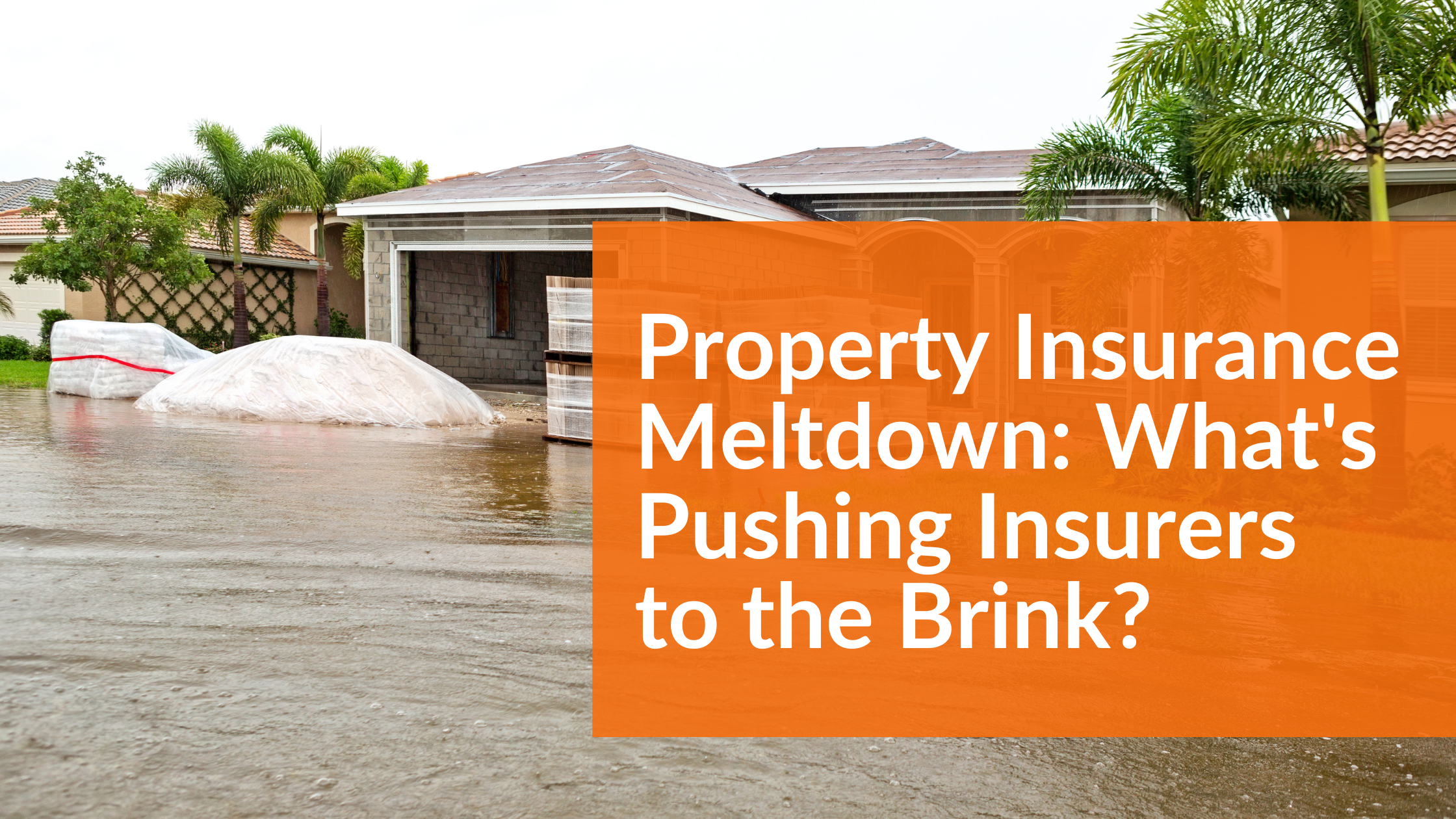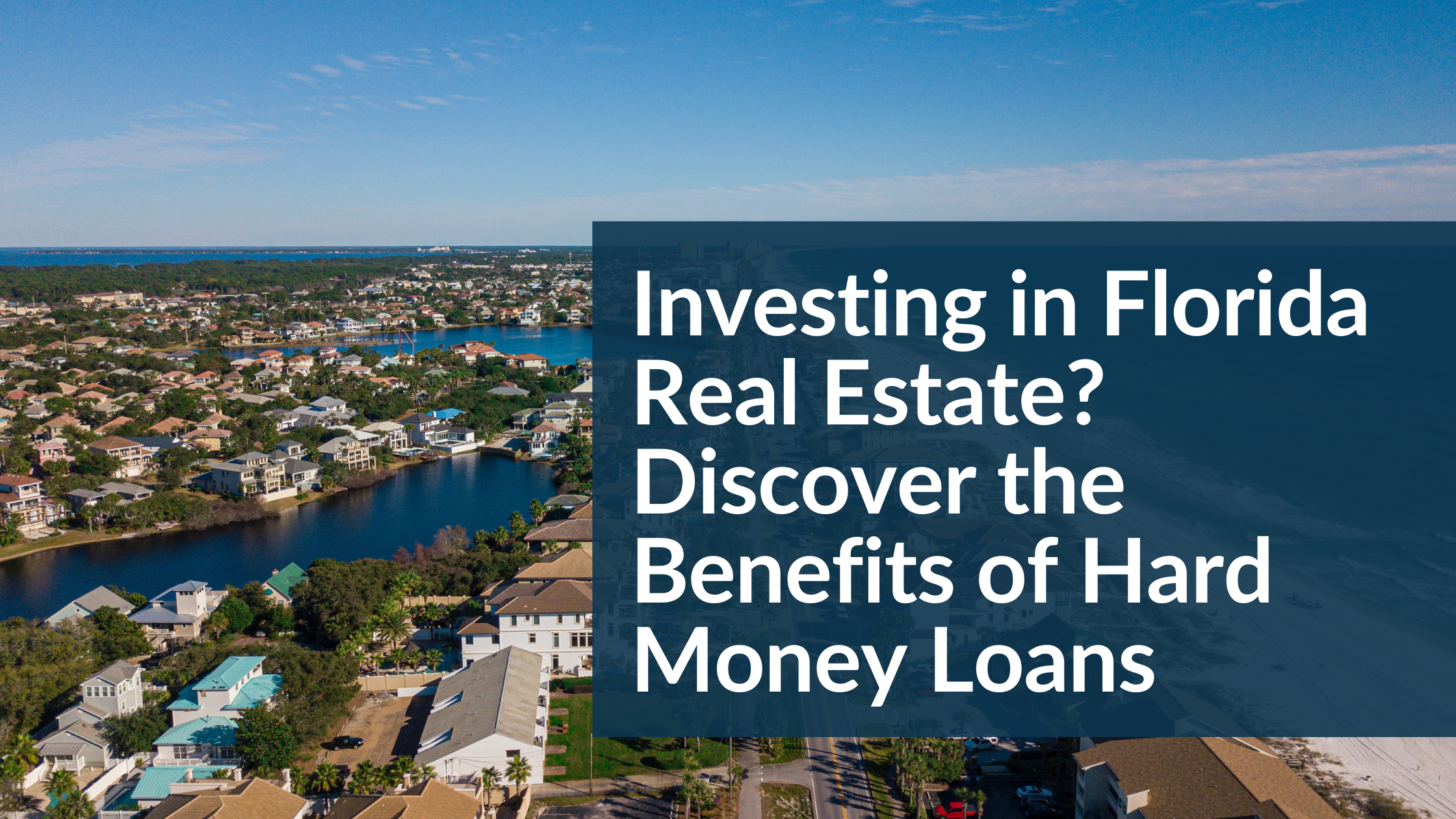Property Insurance Meltdown: What's Pushing Insurers to the Brink?

So, picture this: You've had an offer accepted on a stunning piece of land in Central Florida, just a short drive from the state's magnificent coastline. You're excited about the possibility of using short-term rentals to fund your early retirement. Everything appears to be proceeding perfectly until you get the insurance estimate and then reality sets in. It's like getting hit in the stomach with a sucker.
Insurance premiums have the potential to chip away at your business's bottom line. After talking to an agent, though, you see that there's a chance you avoided disaster. Finding an insurance company to cover your property would have been hopeless had it been located even a few miles to the south.
But what really is happening in the Sunshine State? What about the states of California and Texas? If you've seen how difficult it is to obtain reasonably priced insurance in some places, your worries are well-founded. Many insurance companies have left markets due to the limited capacity and rising pricing. You may be asking, "Why is this happening?" which is a natural reaction.
Where Does the Insurance Industry Stand Right Now?
First, let's go over some insurance 101. The insurance industry also need a profit. It's a delicate balancing act to determine what premium to charge for what level of risk, so that the insurer has enough money to cover its obligations, pay its bills, and turn a profit. Similar to how you, as a real estate investor, could wonder if a project is worthwhile once you've factored in all of the costs involved. Why bother having insurance if each year the claims are higher than the revenue generated? This results in the complete exit of carriers from the market.
The statistical chance of claims from common things like house fires, water damage, theft, etc. is pretty simple to project. However, the frequency with which catastrophes occur seems to have increased in recent years. In Northern California, a fire that engulfed 463,000 acres and destroyed 14,000 buildings was completely unexpected. Who could have foreseen that Hurricane Harvey's 50 inches of rain would cause $120 billion in damage, flooding 300,000 buildings in Houston? It seems like every day brings new disasters, and insurance firms are struggling to keep up with the losses.
Scammers who try to take advantage of policyholders and insurance companies by, for example, convincing an unknowing insured to sign over their benefits years after an event and then trying to squeeze the insurance company for more money than they should have paid, can add thousands to the cost of a natural disaster. It should be noted that the owner receives a very small percentage of these earnings. The largest share is paid to consultants and legal professionals. When this occurs frequently, everyone (including the owner) pays a higher price for insurance for a longer period of time.
Contrary to popular belief, insurance businesses are also required to carry insurance policies. Reinsurance is the term for it. The reinsurance industry has been slashed in recent years. Professionals in the field of real estate claim they have never seen it that bad. Heavy property losses around the world are causing reinsurance firms to lose money, which in turn drives up reinsurance rates or, worse, causes them to totally pull capacity. Increases in insurance rates have a domino effect on all costs. If they are unable to secure any form of reinsurance,
That's when you'll hear insurance providers saying they're pulling out of a market because they have to.
Why Are Insurance Companies Leaving Certain Areas?
Why can't the insurance provider just make everyone pay a higher premium? If we all chip in a little bit more money, we might be able to make it through this bad patch sooner. We will, to some extent, but insurance companies often find they cannot raise rates to cover the increased costs associated with conducting business. This is due to the fact that state governments oversee the operations of admitted insurance companies. Even the slightest rate change requires them to submit paperwork to the state's insurance department (DOI) for approval. Due to a backlog, state DOIs may take several months (or more than a year) to review and approve a filing. Insurance companies are stuck with unprofitable pricing structures. It may be too late to implement a rate change in time, or the new rates may become obsolete before they can be implemented.
Let's go over some of the insurance gray areas so you'll be well-informed when the time comes to purchase your next home.
Greed and Corruption
Insurance is expensive across the entire state of Florida. There are now 14 insurance businesses in liquidation, with the majority having collapsed within the past year. The state's largest property insurer is Florida Citizens, which was established as a market of last resort. In the event that Citizens is unable to meet its claim obligations, it may seek reimbursement from all property owners. Everyone in the state, not only those whose homes are insured by Citizens. Hurricane claims are not even the root cause of the insurance catastrophe. Even in storm-free years, fraud and price gouging remain significant factors. If you really must buy a home in Florida, look for one in the interior that is also in excellent condition. Insuring anything rundown, seaside, or located in South Florida might be a challenge.
Forrestfires
Large swaths of California, Colorado, Oregon, and Washington are particularly vulnerable to devastating wildfires. However, an insurance company's greatest fear is a large, gorgeous cabin in the mountains located miles from the nearest fire station and surrounded by forests. To counteract the potential harm, the premiums will be quite expensive.
Tornadoes
You can also anticipate fairly high premiums and unique high deductibles on wind if you buy a home in Tornado Alley. States of Oklahoma, Missouri, Nebraska, Iowa, and Texas are in my sights.
Isn't this why we pay for insurance? Sure. But let's say you and your neighbors come up with a plan to self-insure your entire neighborhood. If only one or two homes burned down, you'd be fine, but if a tornado wiped out your entire neighborhood, you'd be in trouble. Although purchasing many houses in the same area may appear advantageous in terms of upkeep, an insurance underwriter is unlikely to be enthusiastic about the notion due to the increased risk that comes with doing so.
Storms
As may be expected, hurricanes pose a threat to any region in the southeastern United States that is less than a few miles inland from the ocean. Places like Louisiana, Alabama, Georgia, and the Carolinas come to mind.
Exposure to everything makes life in Texas difficult. It is vulnerable to hurricanes and flooding in the south. Tornadoes are a risk in the north. Wildfires are a risk in the west. Add add a random ice storm because it'll be awesome. The carriers are raising their prices and pulling out.
It's logical that investors would go to popular vacation sites, but if you have some leeway in terms of where you buy property, you might want to examine locales that aren't currently insurance hotspots. You should add the higher insurance premiums into your return on investment if you're set on moving to the area.
Conclusion
That's a lot of gloom and dread to take in at once. Is there hope for us to make it through this? That's what we're hoping! The insurance market is currently experiencing one of its most challenging periods, but past experience suggests that conditions will improve in the not-too-distant future.
Until then, things are likely to be difficult. If you live in a high-risk location and your insurance provider is still willing to renew your policy, you may want to consider just accepting the higher rates and riding it out. In the event of an insurance claim, it is in the best interest of the policyholder to behave in good faith, cooperate with the claims adjuster, and accept payment in accordance with the terms of the policy. Even while you have little control over natural disasters, you may lessen the impact of everyday risks by keeping your rental homes in good condition. This could be the deciding factor in whether or not you are granted insurance.
We've worked hard to earn a reputation as the go-to company for real estate investors all across the country, so we're familiar with the unique issues that can arise in each region. We have spread ourselves across several different partner markets so that we won't lose everything if a single carrier pulls out due to capacity issues. We're also dedicated to matching appropriate risks with insurers, so that both the client and the insurer can be assured that their coverage will be around for the long haul. The enormous insurance cycle of life requires cooperation from all of us.


